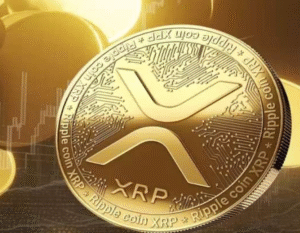$BTC $ETH #CryptoRegulation #MaltaCrypto #MiCA #Blockchain #DigitalAssets #CryptoNews #FinancialOversight #CryptoMarket #RegulatoryClarity #MiCAFramework
Is Malta’s Fast-Track Crypto Regulation As Risky As Ordering Fast Food? Learn the Implications.
In the fast-paced world of cryptocurrency, regulatory developments can sometimes resemble fast-food service: quick and convenient. Critics argue that Malta’s approach to implementing the MiCA (Markets in Crypto-Assets) framework might be ‘like news’ in the fast food analogy, prioritizing speed over thoroughness. This raises critical questions about the balance between efficient regulatory processes and the robust oversight necessary to protect investors.
Understanding Malta’s MiCA Fast-Track Initiative
Malta has positioned itself as a blockchain island, advocating for swift and adaptive crypto regulations. The MiCA framework, designed to harmonize crypto regulations across Europe, has been embraced eagerly by Maltese authorities. They aim to offer a streamlined, less bureaucratic regulatory process, which could attract more crypto businesses to the island. However, this expedited approach has sparked concerns about the depth and rigor of the oversight.
The Risks of Rapid Regulatory Approvals
The primary worry with rapid approvals is that they might not adequately address the complexities inherent in crypto markets. Fast-tracking can lead to oversights, potentially increasing risks for both investors and the broader financial system. Furthermore, the speed of regulatory approvals might not allow for comprehensive public and stakeholder input, which is crucial for creating balanced and effective crypto regulations.
Comparing Global Regulatory Approaches
Other countries have taken a more measured approach to crypto regulation. For instance, the United States and Germany emphasize detailed compliance checks, which tend to slow down the approval process but increase its thoroughness. This contrast highlights a fundamental tension in regulatory philosophy: should the focus be on attracting businesses with quick approvals, or on ensuring long-term stability and investor protection?
Implications for the Crypto Industry and Investors
For the crypto industry, Malta’s fast-track approach could be a double-edged sword. On one hand, it offers businesses reduced bureaucratic friction and faster market entry. On the other, it may lead to vulnerabilities due to potentially weaker oversight. Investors, particularly those less experienced, might be exposed to higher risks if due diligence is compromised in favor of speed.
Navigating the Future of Crypto Regulation
As Malta continues to refine its regulatory framework, the implications of its strategy will become clearer. Observers and stakeholders should monitor how these regulations impact both the local and global crypto landscapes. For those looking to dive deeper into cryptocurrency investments, understanding the regulatory environment is crucial. Engaging with platforms that offer comprehensive insights and resources, such as Binance, can provide significant advantages.
Conclusion: A Delicate Balance
Malta’s fast-track crypto regulation strategy underscores a broader debate within financial oversight: the trade-off between speed and thoroughness. While swift regulatory processes can indeed foster innovation and growth, they must not compromise the safeguards that protect the market and its participants. The future will tell if Malta’s regulatory fast food can meet the gourmet standards required by the sophisticated palate of the global financial community. For now, stakeholders must navigate these waters with caution, armed with information and a keen eye on unfolding regulatory practices.











Comments are closed.